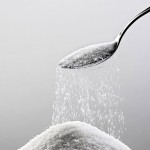
Sugars, particularly sucrose, are the most important dietary aetiological cause of dental caries. The evidence establishing sugars as an aetiological factor in dental caries is substantial. This Cochrane review aimed to look more broadly at whether one-to-one dietary interventions were effective in changing dietary behaviour, as the dental care setting is an appropriate place to deliver this advice as part of patient management.
The usual detailed searching strategy approach of Cochrane was applied to identify papers although in view of the question being addressed as wide range of databases were used (the Cochrane Oral Health Group Trials Register, the Cochrane Central Register of Controlled Trials (CENTRAL), Medline,EMbase PsycINFO , CINAHL , Web of Science key conference proceedings (IADR and ORCA, Reference lists of relevant articles, thesis publications (Dissertations Abstracts).
The authors were looking to include randomised controlled trials assessing the effectiveness of one-to-one dietary interventions delivered in a dental care setting. Robust Cochrane methodology was used for screening and data extraction.
They identified five studies that could be included in the review. Two of these were multi-intervention studies where the dietary intervention was one component of a wider programme of prevention, but where data on dietary behaviour change were reported. One of the single intervention studies was concerned with dental caries prevention. The other two concerned general health outcomes. There were no studies concerned with dietary change aimed at preventing tooth erosion. In four out of the five included studies a significant change in dietary behaviour was found for at least one of the primary outcome variables.
The authors concluded
There is some evidence that one-to-one dietary interventions in the dental setting can change behaviour, although the evidence is greater for interventions aiming to change fruit/vegetable and alcohol consumption than for those aiming to change dietary sugar consumption. There is a need for more studies, particularly in the dental practice setting, as well as greater methodological rigour in the design, statistical analysis and reporting of such studies.
Harris R, Gamboa A, Dailey Y, Ashcroft A. One-to-one dietary interventions undertaken in a dental setting to change dietary behaviour. Cochrane Database of Systematic Reviews 2012, Issue 3. Art. No.: CD006540. DOI: 10.1002/14651858.CD006540.pub2.
http://onlinelibrary.wiley.com/doi/10.1002/14651858.CD006540.pub2/abstract

[…] Dental Elf 16th Mar 2012 – Evidence for dietary advice aiming to change sugar consumptio… […]